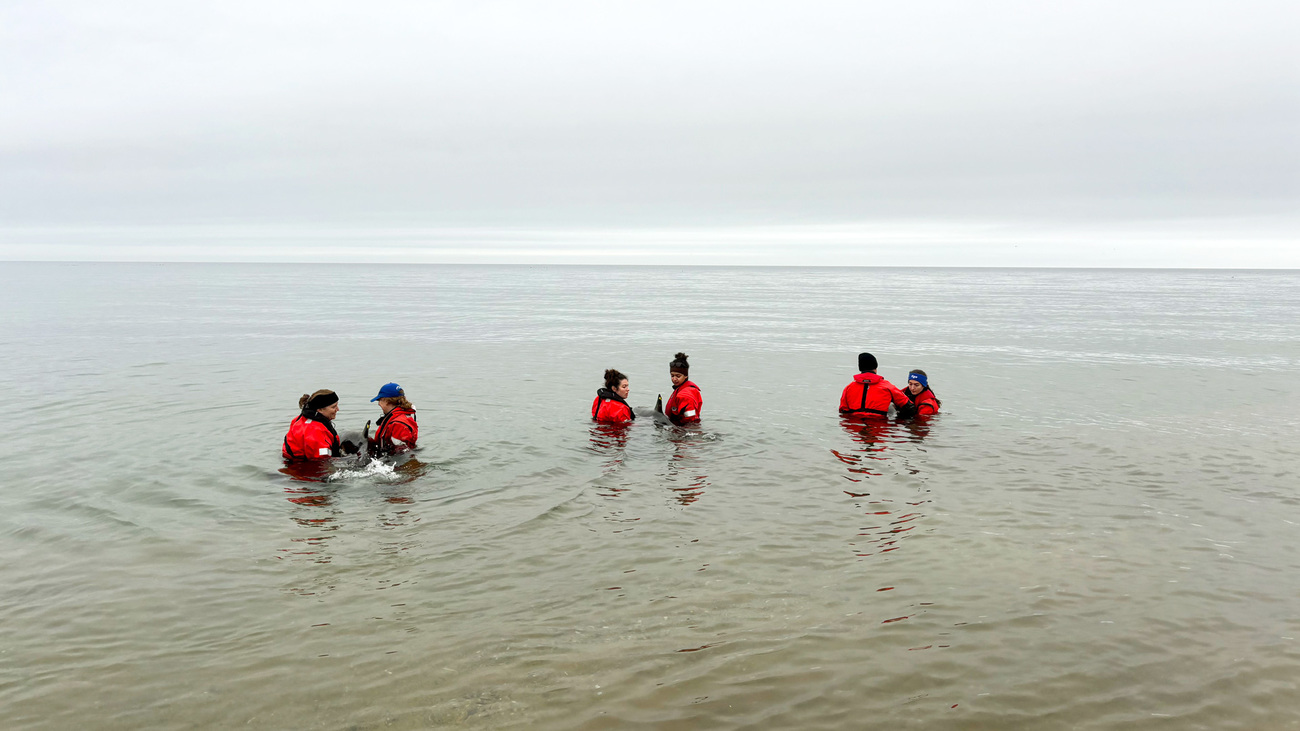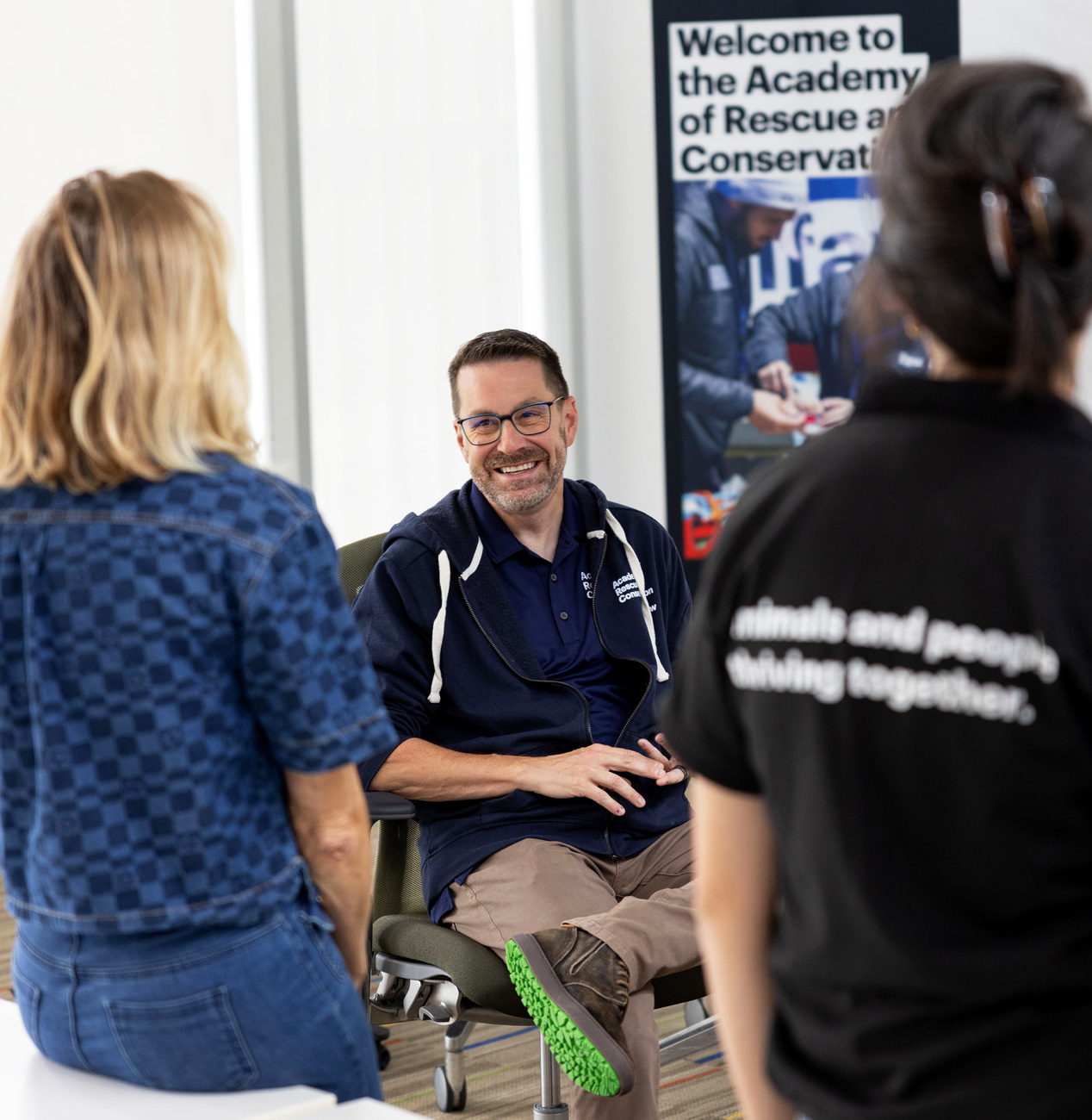Azzedine Downes
I have never been satisfied with just fighting the good fight. We need to actually make a difference.
IFAW’s Academy of Rescue and Conservation ushers in a new wave of innovation
For over 20 years, I have had the privilege of leading IFAW, and throughout my tenure, one powerful truth has stood out: change is inevitable. People evolve, missions transform, and new challenges emerge. This reality has often led me to contemplate the impact of such changes on wildlife conservation and the steps necessary to ensure IFAW’s enduring legacy.
This understanding inspired the establishment of IFAW’s Academy of Rescue and Conservation (ARC). ARC serves as a hub for collaborative research and in-person training, challenging the status quo with best-in-class practices honed over IFAW’s half-century of global experience.

Funded by a generous contribution from the Suzanne McGraw Foundation, ARC is a repository of expertise. It draws from grassroots learning to conference room innovations to support communities, protect animals, and ultimately safeguard our planet. Moreover, ARC is prepared to evolve continuously as the world changes around us.
Furthermore, with the increasing frequency and severity of natural disasters like floods and wildfires, the demand for improved disaster response and higher survival rates has grown. Through IFAW’s ARC, we aim to establish hallmark standards and practices that can be adapted to the specific needs of any global situation.
Our relentless pursuit to save animals has led to new practices and discoveries, transforming conservation. For example, IFAW’s Marine Rescue Team, with nearly three decades of experience, has advanced robust science and pioneered lifesaving techniques for stranded marine mammals. We’ve achieved what many deemed impossible, increasing the survival rate of stranded, rescued, and released dolphins from 30% to nearly 80%. Just last month, we responded to the largest dolphin mass stranding in U.S. history, saving 102 out of 146 dolphins on the shallow mudflats of Wellfleet, Cape Cod.
Keeping these practices under wraps, instead of sharing them with others who can make a difference, represents a significant loss—not only to IFAW but also to the animals and people we could have helped.

It is an ever-expanding collection of courses crafted by staff, professional peers, and leaders in animal welfare and conservation. These trainings cover a wide array of IFAW-specialized topics such as wildlife rescue, safe animal handling, human-elephant conflict, and disaster response and recovery. For example, IFAW’s Dolphin Rescue Center offers workshops on pinniped identification, cetacean ICU training, and mass stranding response. Recently, two additional e-learning courses were added as part of the CARE (Confiscated Animals, Rescue, and Enforcement) project, providing global support to agencies and front-line officers involved in live animal seizures and confiscations.
All of this comes together to turn every call of distress into an opportunity to save an animal and advance our collective knowledge.
Returning to my initial observation on the inevitability of change and its impact on conservation: If we welcome change with preparedness and adaptability, the impact will be net positive. As essayist Nicholas Taleb aptly said, “Wind extinguishes a candle and energizes fire. Likewise with randomness, uncertainty, and chaos: you want to use them, not hide from them. You want to be the fire and wish for the wind.”
ARC is a key part of IFAW’s fire, a catalyst driving a global network of resilient conservationists and trained professionals, ready to face a constantly changing world so that animals and people can thrive together in the place we call home.
Azzedine Downes
I have never been satisfied with just fighting the good fight. We need to actually make a difference.
Our work can’t get done without you. Please give what you can to help animals thrive.
Unfortunately, the browser you use is outdated and does not allow you to display the site correctly. Please install any of the modern browsers, for example:
Google Chrome Firefox Safari